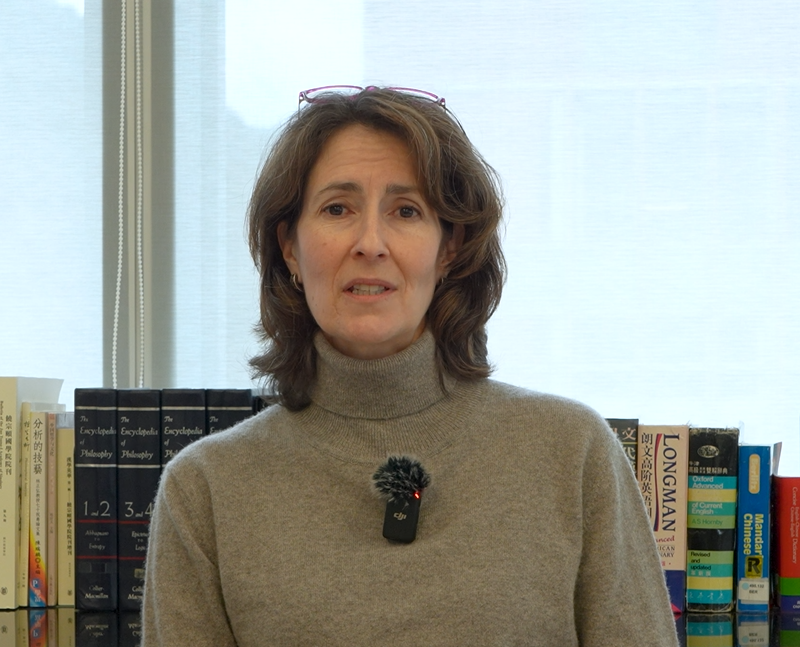Q&A with Dr. Margaret Burnett, SLGP’s Programme Director
The demand for sustainability professionals keeps growing! There’s increasing pressure on individuals to make decisions and act, both individually and collectively to make the urgent change our society and planet needs. No matter where your training and expertise lies, you can advance policy, build capacity, mobilize and empower for sustainable development.
The SLGP supports the skills development that people need to thrive in the sustainable economy, such as renewable energy, smart food systems, diversity and inclusion, biodiversity, resource-efficient cities, addressing poverty, and management for healthy ecosystems, as well as disclosure requirements that will influence corporate decision-making on climate change.
In the programme we have in-depth discussions on current issues and discuss how sustainability-based learning must be central to how we make decisions, how we think, act, and discharge our responsibilities toward one another and the planet. Common question about the SLG programme “Do you teach ESG”?
Sustainability vs ESG
ESG, or the environment, social and governance aspects of a company’s performance, is being scrutinized, and raised the question “Is ESG here to stay or on its way out?” If you look at the headlines you may conclude ESG practices are on their way out, especially with the political backlash in the US. Reports on clean energy funds having underperformed, investors pulling out more from ESG funds than they put in (during 2023), and some indicating that support of ESG funds comes with significant financial risk. The fallout has seen some big players withdrawing from significant alliances for climate change and ESG more broadly.
However, is there risk in ignoring ESG principles and values, or what it set out to achieve at the start? Many frameworks start with the aim of pushing for more contribution to sustainable development, for holding organizations accountable for their negative impacts on the environment, and society. The principles of ESG have been around a lot longer than the early 2000s when the “Who Cares Wins 2004-2008” report kicked this all off. From improving labour conditions, access to education, addressing pollution, there has been plenty of pressure on companies for more just and sustainable business practices.
So, in essence it is not new. The attempts to hold companies accountable through regulation or by voluntary standards and guidelines have shown that governments, investors and consumers recognize the power of corporate entities to shape the world. Repeatedly, this power has come under scrutiny, and some argue that ESG set out to engage companies on the pressing issues of their impacts on the environment, their role in driving climate change and recognition of their responsibility to their stakeholders. However, the interpretation and use of ESG is open to subjectivity and this arguably has helped to further confusion and misuse.
ESG is essentially an investment principle that integrates the environment, social and governance issues into the investing process. It has become a tool for measuring a company’s performance against the same environmental, social and governance issues with the assumption being companies that manage their ESG risks, make better investments. Therefore, it is important to recognize that ESG is a specific framework used to assess the ESG performance of companies, investments and projects, whereas sustainability is a broader set of values and principles that aim to balance economic, social and environmental aspects for societal, and planetary long-term well-being.
The future or implications of ESG, much like other tools, if we’re not viewing ESG from a more integrated manner then the concept will be lost, and especially if we’re not continuously re-examining the tool(s). The danger of greenwashing is that legitimate funds, investments, and businesses are in jeopardy of having their good work tarnished. It has now become critical for investors and business to join the watchdogs, activists, and proponents to call out those undercutting the value of what ESG has and can achieve. Particularly concerning is the on-going offsetting of poor and bad investments with “doing good projects” aimed more at optics and PR. This undermines any progress that has been made.
Understanding where it came from, it’s purpose and objectives, gives us insights as to how the term has been used, misused and perhaps abused. It’s not in anyone’s interest, let alone the company’s self-interest to have ESG’s aim be that of marketing or differentiation or only a risk management exercise. It certainly was not intended as a means to create new financial tools without a purpose of betterment.
Join us in the classroom and discuss meaningful questions: Can the current version of ESG keep pushing organizations up the learning curve or is it time for ESG 2.0 or ESG++. Because as we move forward let’s ask, where in ESG does humanity and well-being fit? For example, the whole health approach given that we very recently experienced a pandemic, and how about recognizing the UNEP Frontiers series which is examining zoonotic diseases. Are there any remnants of “Build back better?” How might we evolve this ESG tool from doing less bad i.e., mitigation, to positive or regenerative investments i.e., the real impact of ESG capital. Can ESG evolve to accommodate, how business activities are addressing, and improving, those material issues it affects by the nature of its business? Rather than solely focussing on how material issues impact the organization’s ability to operate can we get the company to look at how it causes the underlying material issues in the first place?
What might be the next steps? Given that accountability is the legal or ethical responsibility to provide an account or reckoning of the actions for which one is held responsible and differs from responsibility, accountability refers to one’s duty to explain, justify, or report on his or her actions. Corporate accountability need not be restricted to the traditional fiduciary model, nor only to the relationship between corporate management and shareholders. Companies enter contracts (both explicit and implicit) with other stakeholder groups as a matter of everyday business, and these contractual arrangements can serve as the basis for accountability relationships. For example, a company that receives an environmental permit and approvals from regulators to operate its facility can be held accountable by the regulators on whether the terms of the approval are being met. Proponents of social contract theory often argue that corporations are given a ‘license to operate’ by society in exchange for good behaviour, and so the company is to be held accountable to society for their performance. Today, ‘good behaviour’ is far beyond “being in compliance” with the expectations that a company, and its shareholders are actively improving, developing breakthrough projects and championing positive impacts.
Is the company and the board treating ESG, and more broadly, sustainability as a strategic imperative? By following the materiality assessment of ESG issues and providing disclosures in ESG reports, it is assumed to be an indication of a business taking sustainability seriously. However, by the more commonly understood definition of ESG, this may not necessarily be the case. ESG assessment needs to be more than achieving a credit score for a well-run business to be able to capture capital. ESG 2.0 must now become the tool that moves organizations toward contributing to sustainability.


